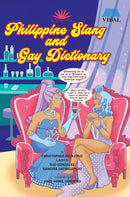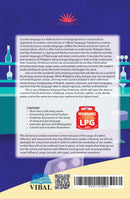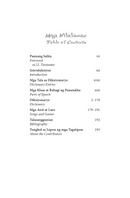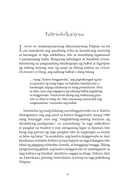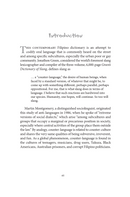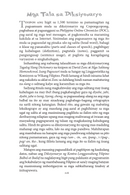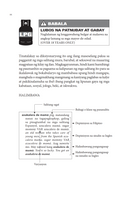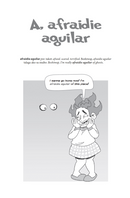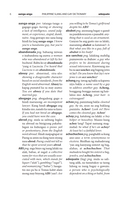Description
Philippine Slang and Gay Dictionary
Counter language is a dialectical form of language that is constructed in opposition to another, more formal, or “official” language. Parlayed as a means of social discourse, counter language codifies the liminal and secret norms of counterculture, which is often hard to translate or understand. Philippine Slang and Gay Dictionary is a daring and fearless incursion into the endlessly inventive counter language of Filipino gay and street communities. It decodes the syntax and semiotics of Philippine slang and gay language in order to fully understand their meaning. Dictionary entries are accompanied by ancillary information
including etymology, usage notes, and example sentences to enrich the reader’s understanding of words that both entertain and boggle the mind.
Join us on this wonderful and amazing journey that will take you to a world of fascinating counter language. While Philippine slang and gay may not correspond to formal linguistic syntax, and may even sound outdated or alien with most words being a hodgepodge of English, Spanish, Japanese, and other languages, any form that this language takes is always vigorous, colorful, and historical.
This is your Philippine Slang and Gay Dictionary, which will open the door to a world of words that teach, challenge, amuse, frustrate, sadden, scare, deride, praise, and at the same time raise your eyebrow to the highest level.
CONTAINS
• More than 2,000 slang words
• Foreword by John Iremil Teodoro
• Academic discussions on the study of slang and gay language
• Extensive glossary and bibliography
• Colorful and evocative illustrations
WARNING
This dictionary contains sensitive content because of the usage of explicit, offensive, and sexual words that may offend some readers. However, we will not apologize for using these words in order to widen the vocabulary of our readers so that they will not be confused, have to guess, or look stupid when they go out into the streets and interact with different social groups such as young people, sosyal (affluent), jologs (uncool), beki (gays), and iskwakwa (squatters).
About the contributors
Christopher dela Cruz graduated with a degree in Bachelor of Science in Psychology at the Pamantasan ng Lungsod ng Maynila and Master of Arts in English Studies, majoring in Anglo-American Literature at the University of the Philippines. He’s currently taking up Doctor of Philosophy in Creative Writing in UP. He was a participant in the ABS-CBN Scriptwriting Workshop for Drama under the mentorship of Ricky Lee and various national writing workshops, such as IYAS Creative Writing National Workshop (Maikling Kuwento), Palihang Rogelio Sicat (Maikling Kuwentong Pambata), and Iligan National Writing Workshop (Maikling Kuwento). Some of his works have been published in different anthologies and reading materials. He has published children’s books such as Nasa Alaala ni Ella, Ang Maraming Kaarawan ni Martin, and Ang Pinakamagarang Sapatos. In 2013, he was awarded a prize for his one-act play at the Don Carlos Palanca Memorial Awards for Literature.
Lady S is a veteran columnist from Philippine Online Chronicles with two decades of experience in comics and pop culture. She won the Catholic Mass Media award in 1980. She served as the editor and compiler of the largest publication of Philippine mother-tongue dictionaries with 19 dialects and languages (Chavacano, Hiligaynon, Bahasa-sug, Waray, Bikolano, Kapampangan, Ilokano, Sinugbuanong Binisaya, Tagalog, Mëranao, Maguindanaon, Pangasinan, Ybanag, Ivatan, Sambal, Akeanon, Kinaray-a, at Surigaonon).
Ojo Gonzales is an avid collector of dictionaries from different parts of the Philippines. His inspiration was the lexicographers San Buenaventura (1613), Noceda and Sanlucar (1754), and Rosendo Ignacio whom he considers as the real father of Filipino grammar after he released the Nueva Gramatica Tagala (New Tagalog Grammar) in 1921. On February 13, 1940, Ignacio strongly dissented Lope K. Santos’ exclusion of the foreign letters c, ch, f, j, ll, ñ, q, rr, v, x, and z in the newly proposed grammar which will hinder the idea of a progressive and intellectual national language.
Randiva Datinguinoo is a full-fledged drag queen. She likes to collect false eyelashes, different kinds of costumes, and accessories from famous local markets in Divisoria and Quiapo. She only has a few pairs of shoes due to the fact that size 44 with at least 5 inches of heels is hard to find. As a member of Dragzilla, she performs in various comedy bars in Quezon City and Malate, Manila with fellow drag queens, Queen Rio D’Alto and Bb. Betty Laborta.
©2023
216 pages
15.24 cm x 22.86 cm
ISBN 978-971-07-5670-4










